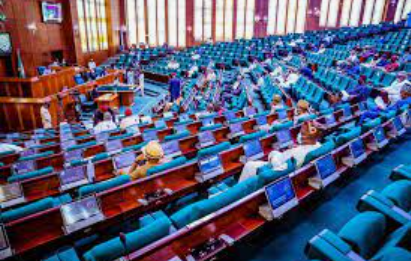Air Marshal Hassan Abubakar, the Chief of Air Staff, has expressed concern about the high costs of fuel and the addition of extra charges.
He said that the cost of Jet A-1 was around N1,200 per liter, which is higher than the N360 per liter that the service planned for.
Abubakar described this as one of the issues affecting the effectiveness of the service.
The PUNCH reports that Jet A-1 is a kerosene-type fuel compatible with most jet aircraft, both civil and military, helicopter turbine engines, turboprops and compression-ignition piston engines.
Abubakar spoke during the visit by members of the House of Representative Committee on Air Force, led by the Chairman, Kabiru Alhassan Rurum, to the NAF Headquarters in Abuja on Wednesday.
According to a statement by the Director of Public Relations and Information, AVM. Edward Gabkwet, Abubakar requested the National Assembly to allow the Air Force to import Jet A-1 fuel to support ongoing air operations.
The statement partly read, “The CAS also used the opportunity of the visit to list some pressing challenges affecting NAF’s effectiveness, one of which is the significant increase in fuel prices and the introduction of extra charges.
“Currently, the situation is worsening, as the cost of Jet A-1 fluctuates at almost #1,200 per liter as against the budgeted #360 per liter. We are asking for permission for the NAF to independently start importing Jet A-1 fuel to support our ongoing air operations.”
Abubakar also requested the establishment of air operations command and control infrastructure among others.
“Other challenges listed by the CAS include the need to improve NAF’s tactical airlift capability to support both land and maritime forces in various theaters of operations as well as disaster relief efforts in remote areas, the need for an air operations command and control infrastructure as well as the need for an enhanced Air Defense and Airspace Surveillance capabilities, among others,” the statement added.
However, Abubakar expressed concern about the recent increase in abductions in the country.
The Air Chief attributed the rising crime rate across the country to the lack of employment opportunities and the high cost of living.
He said, “While terrorists’ activities in the Northeast and Northwest Nigeria have reduced, we have recently seen a rise in the rate and frequency of kidnappings and hostage-taking by the same criminals in the region. The recent coordinated series of kidnappings of over 200 school children in Kaduna, 15 students in Sokoto and several others in Borno States are clear indications of this fact.
“In the southeast and south-south region, the threats posed by secessionists and oil thieves, although decreasing, have also been a cause of concern. These situations have been exacerbated as more Nigerians fall into poverty due to lack of jobs amid high cost of living, leading some to turn to crime.”
Despite these challenges, the CAS noted the NAF has continued to carry out a wide range of intensive air operations, including Intelligence Surveillance Reconnaissance, Air Interdiction and Armed Reconnaissance across operational theaters in the country, with varying degrees of success.



